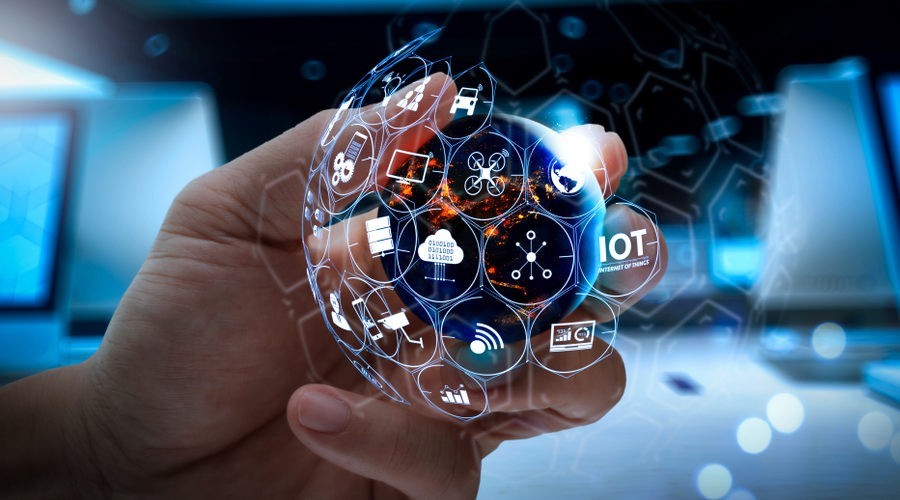In 2025, it’s no longer just about what technology can do—it’s about how it shapes the way we live, work, and connect. From the moment we wake up to the time we go to bed, tech innovation is part of nearly everything we do. Whether it’s smart devices, digital healthcare, or automated services, innovation is changing our routines in ways we once thought were impossible.
As we dive deeper into the age of automation and artificial intelligence, the impact of technology becomes more personal and immediate. From convenience to safety, and productivity to entertainment, this transformation is visible all around us. Here’s a closer look at how tech innovation is actively reshaping everyday life.
Smart Homes That Think for You
Modern homes are no longer static spaces—they are dynamic and intelligent environments. Smart lights adjust based on your habits, coffee starts brewing at your preferred time, and robot vacuums clean the floor while you’re away. Voice assistants like Alexa or Google Home can manage schedules, read news updates, and control household devices with simple voice commands.
The integration of the Internet of Things (IoT) has made it possible for multiple devices to work together seamlessly. This means less manual effort and more control, making home life easier, safer, and more efficient. These features, once considered a luxury, are becoming standard in many households—thanks to ongoing tech innovation.
Healthcare at Your Fingertips
Perhaps one of the most impactful changes comes from the healthcare industry. You no longer need to wait in long queues or spend hours at the clinic. With the help of mobile health apps, AI-powered diagnostics, and wearable devices, individuals can now track their health daily.
Smartwatches monitor heart rates, oxygen levels, and sleep patterns. Digital platforms allow patients to consult with doctors remotely and receive prescriptions via apps. In the background, AI analyzes data to detect early signs of illness, giving people an opportunity to take action sooner.
This transformation reflects the future of healthcare: personalized, real-time, and accessible. The latest tech news even points to remote surgeries, virtual therapy rooms, and health robots entering daily use—all designed to make healthcare smarter and more patient-friendly.
Transportation Transformed
Gone are the days of paper maps and waiting endlessly for taxis. Navigation apps now provide real-time updates, traffic alerts, and alternate routes. Ride-sharing platforms offer convenience at the tap of a button. And autonomous vehicles, once a fantasy, are slowly entering real-world traffic systems.
Electric vehicles (EVs) are gaining popularity as more people make eco-conscious choices. Charging infrastructure is expanding, and cars now come equipped with smart features like lane assistance, auto-parking, and collision alerts. In urban areas, tech innovation has also introduced micro-mobility options—such as e-bikes and scooters—that reduce traffic congestion and pollution.
For many, this new era of mobility is cleaner, safer, and more efficient. The journey is no longer just about reaching your destination—it’s about doing it smartly and sustainably.
Smarter Learning and Digital Classrooms
Tech innovation has completely redefined how education is delivered. Traditional classrooms have given way to digital learning spaces where students can access lessons from anywhere in the world. Interactive apps, virtual labs, and AI tutors are making learning more accessible and personalized.
Students can now set their pace, revisit lessons, and take part in live discussions online. Augmented and virtual reality tools make complex concepts easier to understand—imagine learning about the solar system by virtually flying through it.
Educational institutions are also leveraging data analytics to track progress and identify areas where students need support. These innovations are not just reshaping how students learn, but also how teachers teach and how education systems operate.
Changing the Way We Work
The 9-to-5 office job has been disrupted by flexible work environments. Remote work, powered by cloud computing, video conferencing, and team collaboration tools, is now a permanent part of the workforce.
AI and automation are helping businesses streamline repetitive tasks, boost productivity, and enhance decision-making. Virtual assistants schedule meetings, manage emails, and even take notes during calls. At the same time, cybersecurity innovations are keeping remote work safe and secure.
This shift has not only saved time and money but also allowed people to enjoy a better work-life balance. Businesses are becoming more agile, and workers more empowered—largely due to the advances in workplace technologies.
Shopping and Payments Made Easy
Online shopping is no longer limited to just a few clicks on a website. Today, AI-powered algorithms suggest what to buy, when to buy, and how to save. Augmented reality allows users to try on clothes or see furniture in their homes virtually before purchasing.
Payments have also gone digital, with contactless cards, QR codes, mobile wallets, and even crypto wallets making transactions faster and safer. With fewer people carrying cash, businesses are shifting to completely digital models.
These tech advancements are making commerce smoother, faster, and more personalized—resulting in better customer experiences and increased convenience.
Everyday Fashion Meets Technology
Beyond gadgets and apps, tech innovation is even changing the way we dress. From wearable tech like smartwatches and fitness bands to high-tech fabrics that adapt to weather conditions, the world of trending outfits is blending style with functionality.
Some clothing lines now include built-in sensors for posture correction or temperature regulation. Smart shoes track your steps, and LED-powered garments light up to reflect your mood or surroundings. Tech is no longer just something we use—it’s something we wear and live in.
A More Connected, Informed World
One of the biggest outcomes of all this innovation is better connectivity. Whether it’s staying in touch with family across the world, receiving real-time tech news, or participating in online communities—people are more informed and involved than ever before.
From smart cities that adjust traffic lights based on congestion, to AI assistants that curate news feeds based on your interests, connectivity now defines how we interact with our world.
Final Thoughts
The role of tech innovation in our daily lives is no longer optional—it’s essential. Whether you’re at home, at work, shopping, learning, or just going about your daily routine, technology is quietly working in the background to improve convenience, comfort, and efficiency.
As new advancements continue to emerge, staying informed through tech news and being open to change will be key. The goal isn’t to keep up with every trend—but to understand how innovation can improve the way we live.
The future is not waiting. It’s already here—shaping our everyday lives in more ways than we realize.







